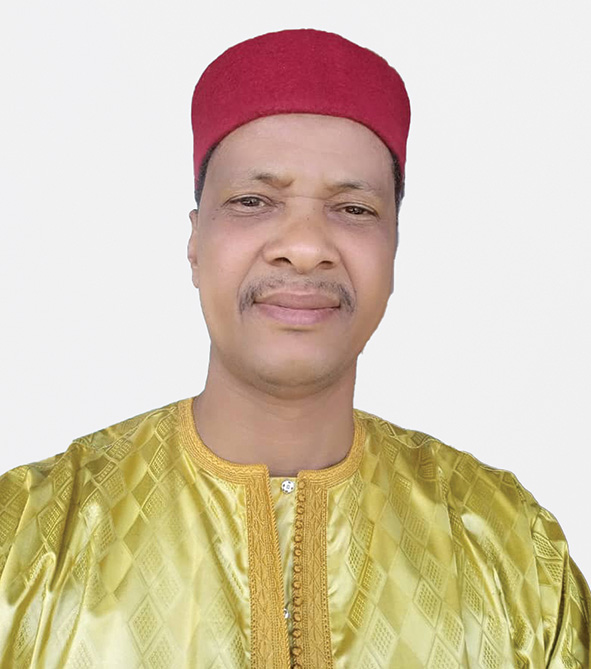Polemag #33: Responding to the learning crisis - Interview with Dr Ahmadou Abdou Ali
In our latest edition of IIEP-UNESCO Dakar's news magazine, Polemag #33, dedicated to responding to the learning crisis, discover our Interview with Dr Ahmadou Abdou Ali, director general for quality promotion at Niger's ministry of Education.
1) With the support of IIEP, Niger has carried out a diagnostic study of its educational quality management practices. What findings emerged? How was the national team involved?
A team from our ministry was formed and went out into the field under IIEP’s coordination to observe and analyse Niger’s education system. They made an effort to get as close as possible to the actors responsible for implementing education policies, from personnel working both in schools and at the central level, to regional inspectors, school management committees, parent-teacher associations, and mother educators associations. On the ground, these experts identified the difficulties preventing Niger from achieving its education quality goals. Among their findings was the rigidity of certain pedagogical practices, caused by top-down directives. For example, when educational counsellors visit a school, they merely check whether the method used for reading or maths instruction meets their expectations. However, these counsellors fail to recognize that teachers often need to be more imaginative to engage students in learning. The national team also realized that our education system generates numerous innovative initiatives that would benefit from being shared. Yet there is no formal framework for sharing these experiences. Although we have pedagogical support units, they currently do not serve this purpose. This lack of communication among stakeholders directly affects teachers’ work and education quality.

2) Following the diagnosis, a first experiment called ‘Shawara Karatu’ was conducted on the use of local data. What results and insights were drawn?
‘Shawara Karatu’ is a term from Hausa, the most spoken language in Niger, meaning ‘school consultation’. ‘Shawara Karatu’ thus refers to bringing together all school stakeholders at the municipal level to discuss issues related to schooling and academic success. Through these discussions, concrete and relevant actions were identified for short-term implementation.
Two Nigerien municipalities were selected for this initial experiment: N’Dounga and Hamdallaye in the Tillabéri region. Initially, both qualitative and quantitative school data such as school enrolment reports, inspection reports, assessment results, and school statistics. Then, local community members – religious leaders, traditional chiefs, mayors, parents, teachers, and so on – were brought together to brainstorm ways to improve their schools, considering the data collected. Through these exchanges, participants highlighted, for example, that some data were inaccurately recorded to showcase one school’s results over another. This issue led to the promotion of students to the sixth grade without even being able to write their own names. These exchanges are very productive and help identify real problems. Furthermore, changes in behaviour have already been noted among participants in ‘Shawara Karatu’. These local community members know they will have to be accountable for what they have done to improve school quality in their municipality.
3) Another experiment conducted by Niger involved organizing tutored micro-teaching workshops with the Teacher Training College. What does this method entail, and what is its significance?
The second experiment took place at the Teacher Training College in Niamey and focused on teaching first grade French. Groups of seven to eight students were formed around a French exercise. Each group was led by a tutoring student who had understood the lessons well. Meanwhile, the teacher worked with a group of students that was struggling more than the rest. The exercises, such as fill-in-the-blank or word-ordering activities, were based on texts previously read in class. The sessions were recorded and the different sequences were then analysed for improvement. In Niger, we have multi-level classes with many students across grades. We found that this method allows the teacher to better manage these large class sizes and that struggling students receive better support. Additionally, this experiment promotes collaborative learning among students and enhances the teacher’s pedagogical practices in planning and executing their work.
4) How can Niger use the results of this programme in its education policy? How can the capacities developed by ministry officials be utilized?
Niger has embarked on major reforms for a qualitative transformation of its education system. The results of this programme, which align with innovative pedagogical practices, will be considered for expansion throughout the country. We have launched an extensive programme of continuous training and revitalization of pedagogical support units to ensure that good initiatives are shared between educational supervisors and teachers. Ministry officials have been heavily involved in this programme throughout its process. The capacities they have developed will be invested in the National Teacher Training Plan to make the system more effective.


